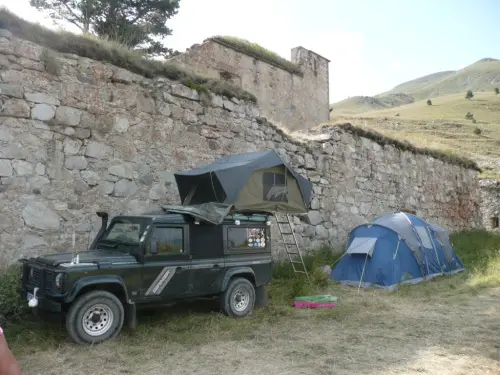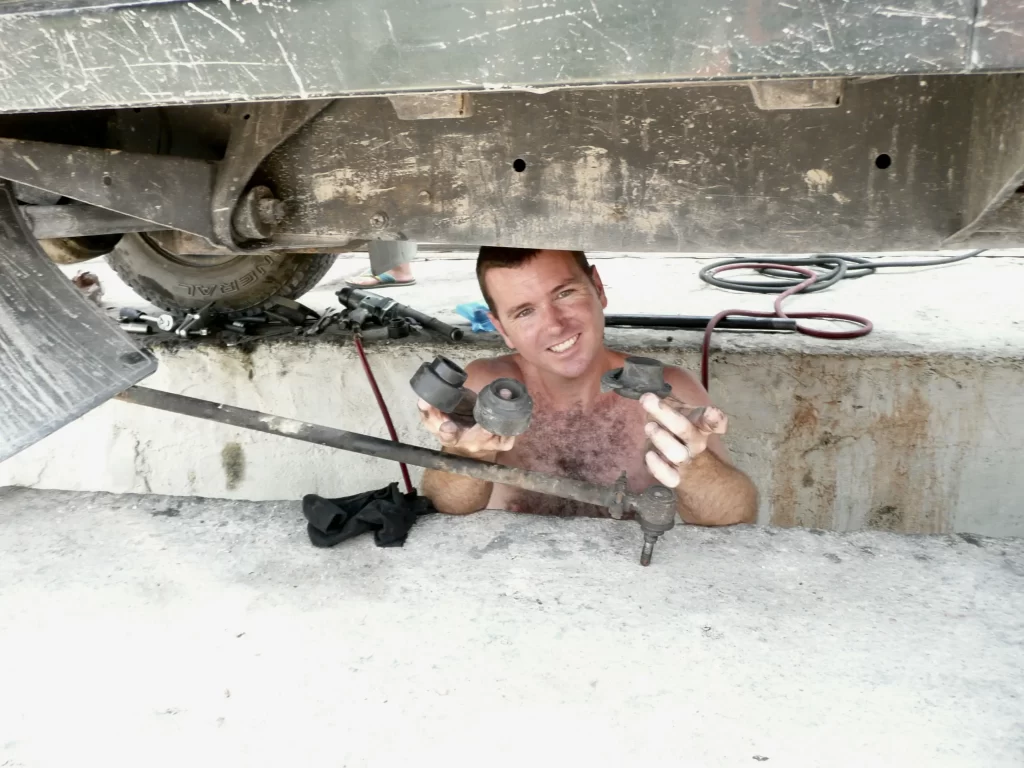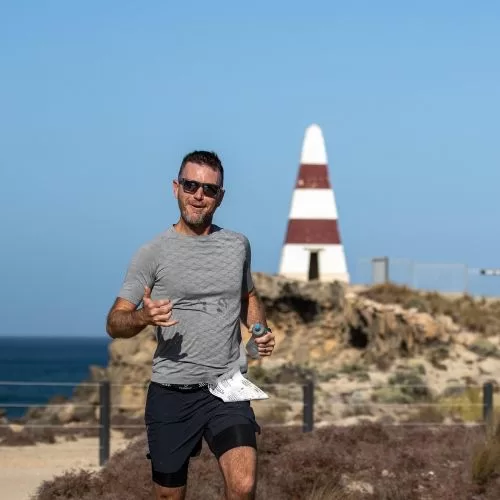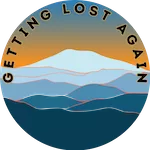Debunking Myths and Embarking on European Adventures
Overlanding: Overland vehicle travel is exploring the world by travelling long distances in a self-sufficient manner. Overland Travel has captivated the hearts of adventurous and wanderlust souls for decades and is very closely related to Van Life and 4WD touring.
Europe, with its diverse landscapes, rich history, and welcoming cultures, stands as a prime destination for overland journeys. While the thought of embarking on such a journey may seem daunting, it’s important to dispel the myths that often deter potential explorers. Europe is an ideal playground to break your overlanding virginity in a safe environment.
Here is a list of the top myths in overlanding.
Myth 1: Overland Travel is Only for Experienced Off-Roaders
While off-roading or getting off paved roads can certainly enhance the overland experience, in that it enhances that sense of being remote, it’s not a prerequisite. Europe boasts an extensive network of well-maintained minor roads that allow you to explore without venturing into treacherous terrains. Europe’s vast highway network allows one to get to an area of interest quickly, before slowing down and relaxing into the flow of the trip. This is certainly a method we developed over the years. Check out some of our articles for information about offroad routes in Europe, one thing to remember is that off-road does not necessarily mean hardcore 4wd’ing. In many cases, off-road tracks are merely gravel roads or tracks that service mountains and national parks.
Numerous campsites cater to overlanders and campervans, providing comfortable accommodation, often amidst breathtaking scenery. Whilst free-camping is not possible everywhere and may not be legal, there are plenty of places where it is possible, have a look at some of our articles to find inspiration.
Overland Tip: Most small towns and villages in Europe have facilities for camping in tents or in vehicles, such as overland vehicles, campervans, motorhomes and caravans. Often the municipal campsites are cheap and as good as any other.
Overland Tip: If you have been off the beaten track for a few days and need a shower, laundry and wifi, these are often a great option.
Myth 2: Overland Travel Requires a Hefty Budget
Overland travel can be tailored to suit various budgets. While purchasing a fully equipped expedition vehicle, with all the modern bells and whistles can be costly, there are more affordable options available. Renting an overland-ready vehicle or adapting your existing car with camping gear can significantly reduce upfront expenses, we recommend the latter.
Overland Tip: Just use what you have or can borrow, get in your existing vehicle and go, stop thinking about it and just do it!
Additionally, adopting a frugal lifestyle on the road, such as preparing meals in/at your vehicle and utilizing free campsites, can further stretch your budget.
Overland Tip: Don’t buy lots of gear! Gear is cool, but seriously you do not need it. Test the water and buy stuff as and when you need it.

Overland Tip: If you are worried about budget, slow down and stay an extra night or two at a place. The most expensive part of overlanding is driving. Stretch your budget by relaxing and not driving! This works really well if you can score a free camp in nature and have supplies with you.
Myth 3: Europe is Difficult to Navigate for Overland Travellers
Europe has a well-developed transportation infrastructure, making navigation a breeze. Numerous maps and GPS devices specifically designed for overlanders are readily available. Additionally, online resources and travel forums provide valuable insights and route recommendations from other experienced travellers.
Overland Tip: The best way to navigate is using Google Maps. Most legal tracks are on Google Maps!
Myth 4: Language Barriers Pose a Significant Challenge
While language barriers may exist, they can be easily overcome with a little effort. Learning basic phrases in the local language can go a long way in enhancing your interactions with locals and having fun interactions. Additionally, translation apps, such as Google Translate and phrasebooks can provide assistance when needed.
Overland Tip: Google Translate allows you to point the camera at any language to translate it. You can also use the conversation mode to learn phrases and listen to them to practice. Just beware that Google Translate does not always get it right!

Myth 5: Overland Travel is Dangerous
Europe is generally a safe continent for overland travel. However, as with any travel, practising caution and common sense is essential. Familiarize yourself with local customs and regulations, be mindful of your surroundings, and take precautions to secure your vehicle and belongings. Importantly be respectful and open-minded!
Take the Next Step: Embarking on Your Own European Overlanding Adventure
Now that we’ve dispelled the myths, let’s embark on planning your European overland adventure.
Popular Routes for Overland Expeditions in Europe
Europe offers a plethora of overland routes, catering to diverse interests and time frames. Here are some suggestions for expeditions ranging from one to four weeks, these all consider a starting point from Calais in France:
One-Week Overland Expedition:
- The Alps Loop: Head south through France towards the Maritime Alps, and explore the LKGS. On this route you will traverse the majestic Maritime Alps, winding through stunning mountain passes, exploring forts and free camping and picturesque in the foothills villages. Take your time heading out and back via central France.
Two-Week Overland Expedition:
- The Slovenian Taster Adventure: Add onto the Alps loop with this by heading out via northern Italy and into Bovec Slovenia, where you can explore the glacial Soca river and world war history in beautiful mountain landscapes and hikes. This is one of our favourite spots to chill out.
Three-Week Overland Expedition:
- The Portugal and Spain Odyssey: Take your time heading through France, check out the Loire Valley, and then head to the Atlantic coast. Head across Spain, via the Picos de Europe, before hitting Santiago de Compostela, then head south through the northern border of Portugal. Where you can explore offroad tracks in the Alto Douro wine region.
Overland Travel Checklist: Essential Preparations

Before embarking on your European overland adventure, ensure you have the following essentials covered:
- Vehicle Preparation: Ensure your vehicle is in top condition, with necessary maintenance and safety checks completed. We recommend you get your vehicle serviced at least one week before your departure. This allows time for anything that might need fixing to happen before you go and for catching post-services issues, which are not uncommon.
- Paperwork and Insurance: Obtain copies of the necessary travel documents, including vehicle registration, insurance, and visas. Carry several copies. Consider comprehensive insurance coverage for your vehicle and personal belongings.
- Visas and Green Card Insurance: Note. If you travel outside of the Schengen visa area of Europe you will need to get a visitor visa at the border, this is in most cases a stamp in your passport and a friendly chat with the border guard. At these borders, you will most likely have to buy green card insurance, which is third-party and cheap. You normally buy it from an agent. It also normally covers several countries, ask when you buy it.
- Mobile Comms: Buy a sim card at the border and if you do not have cash get it changed at the border.
- Camping Gear and Provisions: Pack appropriate camping gear, including a tent, sleeping bags, cooking gear and utensils, and essential supplies. Stock up on non-perishable food and water, if you are heading off free camping, you do not want to run short of supplies and have to return to normal towns!
- Navigation Tools: Equip yourself with maps, GPS devices, and route planning software. But in most cases using Google Maps or GAIA GPS is also good and the best option, especially if you are just starting out.
- Emergency Supplies: It goes without saying that you should always have a first aid kit in your vehicle, emergency tools, and a communication device, such as a satellite phone may be needed if you are going far off the beaten track, in most cases a mobile phone is fine. I prefer to use a Garmin inreach to a satellite phone.
- Cultural Sensitivity: Research local customs and etiquette to ensure respectful interactions with the communities you encounter. We all need to remember that the laws and cultural norms you are used to at home, may not be the same as the place you are visiting. To avoid getting in trouble and to get the most your of your trip, be respectful, be curious.
- Flexibility and Adaptability: Embrace the unexpected and be prepared to adjust your plans as circumstances arise. In other words, it does not matter if things go wrong. roll with the punches and go with the flow. Relax you are on a break to recharge.
Embarking on Your European Overland Journey
With your preparations complete, it’s time to embark on your European overland adventure. Embrace the spirit of exploration, immerse yourself in the diverse cultures you encounter, and cherish the memories you create along the way. Travel slowly.

Dan’s a windsurfing, adventure-seeking nomad with a passion for exploring the globe overland and an Engineer. Having grown up in the Middle East, he brings a unique perspective to Getting Lost Again, sharing his love for discovering hidden gems and embracing the unexpected. When he’s not on the road, he finds inspiration in windsurfing and other creative pursuits – and is equally at home under a vehicle solving problems as he is exploring a new place.

Pingback: Short Summer Overland Family Tour of France